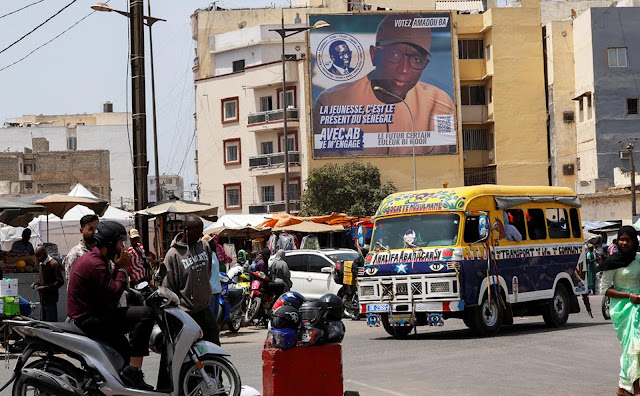How a taxman released from prison 10 days before the election defeated the prime minister
Senegal's new president became former tax inspector Bassirou Diomai Faye. He proposed "cleaning up the political class," renegotiating oil and gas contracts, and changing the national currency.
The main opposition candidate Bassirou Diomai Fay, who turned 44 on March 25, became the new president of Senegal following the March 24 elections.
Although Senegal's General Directorate of Elections has not even published interim results (it will release the official results within a week, tentatively on Friday, March 29), international media have already reported Faye's victory.
The opposition leader was congratulated on his victory by his main rival, with whom Fai was expected to fight in the second round - 62-year-old candidate from the coalition of current President Macky Sall Benno Bokk Yakaar, the country's prime minister from 2022 to 2024 Amadou Ba. He left his post as prime minister in early March to run for office. "I pray Almighty God to grant him the energy and strength needed to serve in this high position at the helm of our country. I wish him great success and success for the good of the Senegalese people," Ba wrote on the social network X (formerly Twitter).
Outgoing head of state Macky Sall, whose term expires on April 2, also congratulated Fai on his victory. "I welcome the smooth conduct of the presidential election of March 24, 2024 and congratulate Mr. Bassirou Diomai Faye, who appears to be the winner," he wrote on social network X. - This is a victory for Senegalese democracy."
A former tax inspector, Fai is a candidate of the non-systemic opposition, and in his program he called for the so-called purification of the country's political class. His other proposals included getting rid of the CFA franc (a monetary unit introduced in 1945 in the then French colonies in West and Equatorial Africa), introducing a new currency and expanding English-language teaching.
He entered the race ten days before the election when he was released from prison on March 14 under an amnesty that Macky Sall announced on March 7 for anyone arrested at political rallies between 2021 and 2024. Ousmane Sonko, also a former tax inspector, was released from prison at the same time, the main opposition figure who in 2014 founded the party Patriotes africains du Sénégal pour le travail, l'éthique et la fraternité (Patriotes africains du Sénégal pour le travail, l'éthique et la fraternité, PASTEF).
Initially, Sonko was to be elected. In 2021, he was charged with child molestation; the charge was dropped in 2023, but he was soon arrested and convicted of sedition and the PASTEF party was dismantled. Fai was also taken into custody in April - he was charged with libel and contempt of court after criticizing Sonko's prosecution. He was later charged with sedition and undermining state security. After it became clear that the PASTEF leader would not be allowed to contest the election, the opposition nominated Fai - Sonko urged people to vote for him. "No one can say he is dishonest. I would even say he is more honest than me. I trust the project in his hands," Sonko said in an address to voters (quoted by Reuters). The election posters featured both politicians and the slogan on them was "Diomai is Sonko." Senegalese media assessed that it was this support that was crucial to Faye's election.
"Bassirou Faye plays on the sentiments of frustrated young voters and promises a revision of oil and gas contracts, withdrawal from the "franc zone" and the introduction of a new currency, as well as the revision of relations with the former metropolis France, which the radical part of the opposition considers, to put it mildly, unequal," - wrote on the eve of the elections Africanist, author of the telegram channel Zangaro Today Alexei Tselunov. The expert drew attention to the fact that, according to Afrobarometer polls, 71% of Senegalese are convinced that the country is moving in the wrong direction, and 63% assess the economic situation in the country as bad, and in this regard, the positions of both Fay and Ba, who promised businesses to continue the course of Salle on the development of large deposits, were vulnerable.
Under the Petroleum Code adopted in 1998, Senegal can authorize a foreign company to "conduct petroleum operations" while reserving the right to participate in them - the state-owned company PETROSEN is involved in the exploration and development of the fields. Senegal plans to become a major oil and gas exporter. According to the International Monetary Fund, the country discovered fields with reserves of 400 million barrels of oil and more than 40 trillion cubic feet (1.2 trillion cubic meters) of gas between 2013 and 2017.
Among the discovered fields, in particular, is the Greater Tortue Ahmeyim (GTA) offshore liquefied natural gas (LNG) field, which is located at a depth of 2 km on the border of Senegal and Mauritania - it is being developed together by the British BP, the American Kosmos Energy, the Senegalese PETROSEN and the Mauritanian SMH (Société Mauritanienne des Hydrocarbures et du Patrimoine Minier); BP acts as operator. The British corporation was also involved in the development of another offshore LNG field, Yakaar-Teranga, but withdrew in November 2023: according to Bloomberg, the reason was that the Senegalese government wanted to produce LNG for the domestic market, while BP wanted to channel the resource for export. According to Senegalese energy minister Felix Diop, the company withdrew from the stake without paying any "financial compensation." Another offshore field, Sangomar, contains gas and oil and is located 100 kilometers south of Dakar. It is being developed by Australian oil and gas company Woodside Energy as operator and PETROSEN. It is planned to start oil production in mid-2024.
In May 2022, Macky Sall said that Senegal would be ready to supply LNG to Europe - according to Bloomberg, the EU was considering an option in which the resource from Senegal, Nigeria and Angola would replace supplies from Russia amid the conflict in Ukraine. According to the European Council, the leading gas suppliers to the EU in 2023 are Norway and the United States (Norway accounts for almost 30% of total imports); additional suppliers are North African countries, the UK and Qatar.
The main problem with Senegal's oil and gas exports is that it could come at the expense of unmet domestic needs. The International Energy Agency (IEA) estimates that Africa's domestic demand for oil and gas will account for about two-thirds of the continent's production between now and 2030. One of the key challenges in Senegal is electrification: only 65% of Senegalese have access to electricity. "Because the development of [energy] projects depends on foreign companies as well as strong demand from Europe - especially amid the search for alternatives to Russian gas - electrification in African countries has received little attention," Bloomberg writes.




0 Comments